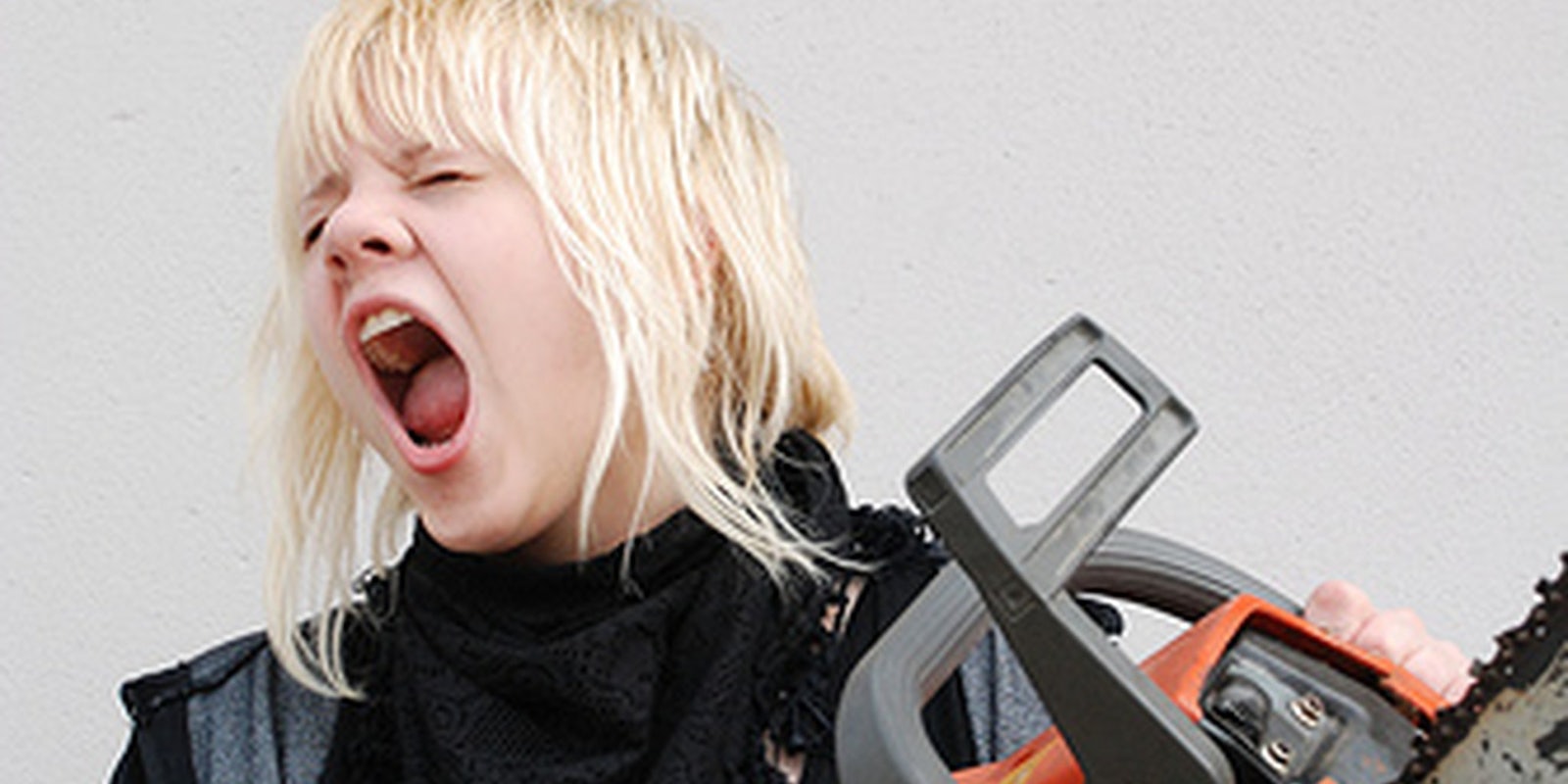Can a media publication write about a video depicting a gang rape without publishing photos of the crime in question?
Jezebel, Gawker Media’s blog of “celebrity, sex, and fashion without the airbrushing,” which has long upheld a proudly feminist agenda, answered this question on Wednesday with a “no.”
That was the wrong answer, according to Jezebel’s fervent commenters and members of other Web communities. The protests have spawned a Twitter hashtag and a Tumblr.
The Jezebel post in question, “Did Libyan Video of a Journalist’s Rape Get Posted on YouTube? [Warning: Graphic Images]” featured photos of the rape along with detailed descriptions of each photo. Originally, only genitalia was pixelated.
The blog itself labeled the post “Horrible.” Practically everyone agreed: The Daily Dot looked, but could not find a single reader supporting Jezebel’s decision to publish the photos.
YouTube quickly removed the video in question, as depictions of graphic violence violate YouTube’s community guidelines.
Jezebel readers, according to the comment section, were outraged by the photographs depicting the rape and quickly took to denouncing Jezebel on various social media platforms. Many tweeted using the hashtag #nojez to organize their protest.
According to Topsy, that hashtag was tweeted 181 times, not including retweets; some tweets were shared dozens of times.
A similarly titled Tumblr, No Jez, sprouted from the controversy, collecting articles and other reactions to the controversy.
Others voiced their displeasure on the Facebook fan page of the post’s author, Anna North.
Jezebel, noticing the backlash, further pixelated the photos, including the faces, and updated the post with an editor’s comment:
“This post is ultimately about the existence of a video, thus the images ARE the story — without them, there’s nothing. To remove them would be, in effect, to un-report the story. Which is not going to happen.”
That statement didn’t satisfy readers or critics.
Forbes blogger Kashmir Hill wrote about the controversy, and I reached out to her for further comment. She disagreed with the need to publish the photos.
Hill pointed out “one can convey atrocity without showing it … using words, a common and handy tool employed by many a blogger and journalist.”
The publication of the photos of the rape victim “came across as ‘rape porn’ to many shocked readers,” she said—meaning that the photos served to titillate rather than educate.
Hill wasn’t alone in that opinion: “The images are disgraceful, but the editor’s comment is worse. If you can’t write an article without pictures, that’s pretty pathetic for a journalist,” wrote Jezebel commenter whateverthelittlebird.
The Frisky also disagreed with the need to publish the photos, arguing that the rape victim was further “victimized” by the photos, echoing a popular sentiment among Jezebel readers.
Jezebel has not updated the post since the editor’s note, but it looks like the controversy is not going away. The #nojez hashtag still shows traction, as do other forms of critique.
“I am disgusted with your ‘article’ on a rape victim. I was a faithful reader for 3+ years, but no more,” wrote LadySnarksalot on Twitter, addressing both Jezebel and the post’s author.
Photo by Sosialistisk Ungdom


